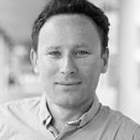 |
| WORKSHOP 6 |
|
 |
| . |
|
|
Igor Aharonovich
UTS, Australia
Invited – Workshop 6: Photonics, Plasmonics and Phononics
Igor Aharonovich is an award-winning scientist working on cutting-edge research into quantum sources that are able to generate, encode and distribute quantum information. A Professor in the School of Mathematical and Physical Sciences at UTS, Igor investigates optically active defects in solids, with the aim of identifying a new generation of ultra-bright solid state quantum emitters. He is a chief investigator at the ARC Centre of Excellence for Transformative Meta-Optical Materials (TMOS), and leads an international collaboration investigating the chemical structure of crystal imperfections, or defects, in the nanomaterial hexagonal boron nitride (hBN). In 2013, he established the nanophotonics research group at UTS, was promoted to Associate Professor in 2015, and to a full Professor in 2018. His research group explores new quantum emitters in wide bandgap materials, with the aim of fabricating quantum nanophotonic devices on a single chip for the next generation of quantum computing, cryptography and bio-sensing. In 2016, Igor and his team discovered the first quantum emitters in 2D materials that operate at room temperature based on defects in hBN. He has co-authored more than 200 peer-reviewed publications, including one of the most cited reviews on diamond photonics. He has also written a road map for solid state single-photon sources.
|
|
|
|
|
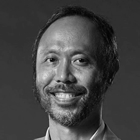 |
| INDUSTRIAL FORUM |
|
 |
| . |
|
|
Rezal Khairi Ahmad
NanoMalaysia Berhad, Malaysia
Invited - Industrial Forum
Dr. Rezal was appointed as the Chief Executive Officer of NanoMalaysia in January 2013. Dr Rezal holds a Ph.D. in Nanotechnology, Electronic/Electrical Engineering from London Centre for Nanotechnology, University College London as the first Khazanah Ph.D. Scholar. As NanoMalaysia’s first employee, he crafted the company structure and developed the business model and corporate positioning strategy relative to like-minded government agencies and relevant industries. Between August 2012 and February 2013, Dr. Rezal also served as Acting Under Secretary of National Nanotechnology Directorate, Ministry of Science, Technology and Innovation (MOSTI). From June 2012 to May 2014, he came under secondment from Khazanah Nasional, an investment arm of the Government of Malaysia. Prior to that, he was a Manager at GEMS Sdn. Bhd. and Business Development Manager in a local ICT private company from 2000 to 2001
|
|
|
|
|
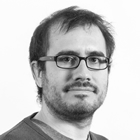 |
| WORKSHOP 5 |
|
 |
| . |
|
|
Isaac Alcón
Universitat de Barcelona, Spain
Invited – Workshop 5: Nanographenes and related 2D-based nanostructure
Isaac Alcón (IA) obtained the BSc in Chemistry from the Autonomous University of Barcelona (UAB) in 2011, and a MSc in Nanotechnology and Materials Science in 2013 at the same university. He then carried out a PhD at the University of Barcelona focused on studying, via numerical simulations, the electronic and magnetic properties of radical-based molecules and 2D conjugated polymers (2DCPs). He then did a postdoctoral stay at the Technical University of Denmark (2018-19) which was focused on the modelling of quantum transport in carbon 2D nanomaterials. After that, as a Humboldt postdoctoral fellow at the Freie Universität Berlin (2019-21) IA worked on the simulation of full-carbon molecular nanoelectronic devices. In 2021, as a Juan de la Cierva postdoctoral fellow, he visited the Catalan Institute of Nanoscience and Nanotechnology, where he focused on modelling the effect of electrostatic disorder and finite temperature on the quantum transport properties of carbon 2D nanostructures. Since October 2024 he is back at UB working on the modelling of molecular materials and 2DCPs for electrocatalysis and nanoelectronic applications.
|
|
|
|
|
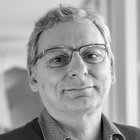 |
| INDUSTRIAL FORUM |
|
 |
| . |
|
|
Pedro Alpuim
INL, Portugal
Invited - Industrial Forum
P. Alpuim holds a Ph.D. in Materials Engineering from IST-Lisbon (2003), where he worked on thin-film silicon devices on plastic substrates for flexible electronics. Since then, he has been a professor at the Physics Department of the University of Minho. He is also affiliated with the International Iberian Nanotechnology Laboratory (INL), Braga, where he has served as a group leader since 2016. His group grows graphene and other 2D materials using CVD and LPE, fabricating biosensing chips at the wafer scale, various environmental sensors, and optoelectronic devices. His research interests include single photon emitters from hBN and devices based on light-matter interactions. Alpuim has authored or co-authored more than 130 publications and delivered 60 oral presentations at international conferences. He supervised 10 postdoctoral researchers, 12 PhD students, and 37 MSc students. He served as the Director of Engineering Physics undergraduate and graduate courses at the University of Minho from 2019 to 2024. He has coordinated or is currently coordinating research projects funded by competitive grants worth over €4.8 million and has participated as a team member in projects valued at more than €5 million, many of which have been on innovation with companies.
|
|
|
|
|
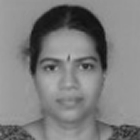 |
| INDUSTRIAL FORUM |
|
 |
| . |
|
|
Seema Ansari
Centre for Materials for Electronics Technology (C-MET), India
Invited - Industrial Forum
Dr. A. Seema has received Ph.D in composite materials from Cochin University of Science and Technology. She is a recipient of Nari Shakti Puraskar, the highest Civilian honor for Women in India and also a recipient of the prestigious National Award for Women’s Development through Application of Science and Technology awarded by Government of India. Her invention on wearable device for breast cancer screening was selected as one of the best ten innovations in Prime Minister’s award for Excellence in Public Administration in the innovations category. She was awarded “OPPI recognition” by Organization of Pharmaceutical Producers of India. She was also felicitated by ARMREB (DRDO) for her outstanding contributions for “Development of Supercapacitor Bank for Electronic Time Fuse Application”. She has transferred several indigenously developed technologies to industries for commercialization.
|
|
|
|
|
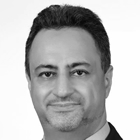 |
| INDUSTRIAL FORUM |
|
 |
| . |
|
|
Hassan Arafat
RIC2D & Khalifa University, UAE
Invited - Industrial Forum
Prof. Arafat is the Senior Director, Research and Innovation Center for Graphene and 2D Materials (RIC2D) and professor of chemical engineering at Khalifa University in Abu Dhabi, UAE, where he is working since 2010. He received a Ph.D. and BSc in Chemical Engineering from the Univ. of Cincinnati (USA) (2000) and the Univ. of Jordan (1996), respectively. He is a recipient of several research fellowships by the US National Academy of Science (USA), the Open Society Foundation (USA) and DAAD (Germany). Through his career thus far, he supervised 58 postdoctoral fellows and graduate students. His research was published in 270+ book chapters, journal papers, and conference presentations, in addition to two US patents. He was invited to deliver 60 keynote and invited talks worldwide
|
|
|
|
|
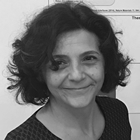 |
| WORKSHOP 9 |
|
 |
| . |
|
|
Carmela Aruta
CNR-SPIN, Italy
Invited – Workshop 9: Energy Applications of 2D Materials
Carmela Aruta is a Research Director at National Research Council (CNR-SPIN) in Rome, Italy. She obtained a Ph.D. in Physics from the University of Naples in 1999. She worked as a postdoctoral researcher at the European Synchrotron Radiation Facility (ESRF) in Grenoble, France, before becoming a tenure track researcher at CNR in Naples, Italy. Since 2006, she has been a staff researcher at CNR-SPIN, first in Naples and later in Rome, where she held the position of Deputy Director. Her expertise lies in the deposition of thin films and multilayers and the characterization of their structural and electronic properties using both laboratory techniques and synchrotron radiation facilities. Her research primarily focuses on novel phenomena emerging at the interfaces of 2D layers, thin films, and multilayers with diverse functional properties for energy applications.
|
|
|
|
|
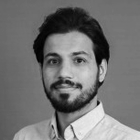 |
| INDUSTRIAL FORUM |
|
 |
| . |
|
|
Sadegh Kamaei Bahmaei
Melexis, Switzerland
Invited - Industrial Forum
Sadegh Kamaei holds a PhD in Microelectronics and Microsystems from EPFL, where he explored 2D and ferroelectric materials for energy-efficient sensing and computing. His research contributions include several high-impact publications, notably in Nature Electronics on utilizing 2D materials for energy-efficient platforms and in npj 2D Materials and Applications. He has been recognized with the EPFL Doctoral Program Thesis Distinction, having published over 10 scientific papers during his PhD. His work has been presented at numerous international conferences, including ESSDERC, Transducers, and MRS, and he has been an invited speaker at SSCC. Professionally, he has worked as a Senior R&D Specialist at Xsensio, where he led technology development for wearable biomarker detection. Currently, he is a Senior Sensor Design Engineer at Melexis, leading the development of a GFET-on-CMOS biosensing platform
|
|
|
|
|
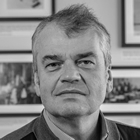 |
| INVITED |
|
 |
| . |
|
|
Dmitri N. Basov
Columbia University, USA
Invited – Plenary Session
Dmitri N. Basov (PhD 1991) is a Higgins professor and Chair of the Department of Physics at Columbia University [http://infrared.cni.columbia.edu], the Director of the DOE Energy Frontiers Research Center on Programmable Quantum Materials and co-director of Max Planck Society – New York Center for Nonequilibrium Quantum Phenomena. Prizes and recognitions: Sloan Fellowship (1999), Genzel Prize (2014), Humboldt research award (2009), Frank Isakson Prize, American Physical Society (2012), Moore Investigator (2014, 2020), K.J. Button Prize (2019), Vannevar Bush Faculty Fellowship (U.S. Department of Defense, 2019), National Academy of Sciences (2020).
|
|
|
|
|
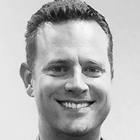 |
| INDUSTRIAL FORUM |
|
 |
| . |
|
|
Matthew Bishop
Dickinson Corp, USA
Invited - Industrial Forum
Matthew Bishop is the CEO of Dickinson Corporation, a private materials research laboratory in the San Francisco Bay Area. He has worked for over a decade in graphene research and is an expert in the design and synthesis of hierarchical graphene systems. His work includes seven patents related to hierarchical graphenes, an emerging category of architected graphene networks constructed via covalent, edge-to-edge assembly of 2D macromolecules. Mr. Bishop advocates for a critical rethinking of the commercial future of low-dimensional particle types such as nanotubes and nanosheets in view of the emergence of larger-scale, rationally-designed hierarchical graphenes with strong morphological advantages in applications.
|
|
|
|
|
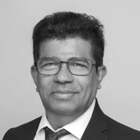 |
| INDUSTRIAL FORUM |
|
 |
| . |
|
|
Sivasambu Bohm
Graph-Nova & Imperial College London, UK
Invited - Industrial Forum
Prof Siva Bohm is a Royal Society Industry Fellow @ Imperial College London and a visiting Professor at Xi'an Xiaotong University. Professor Bohm is an expert in nanomaterials chemistry, particularly Graphene, h-BN 2D Materials, Decarbonisation technologies, electrochemistry, and energy storage technologies. His research interests include lithium-ion batteries, hydrogen storage materials, fuel cells (PEM), graphene production, and industrial product applications. Siva has 25 years of industrial experience in various research fields: new materials and metallurgy, protective coatings, energy storage, Automotive technologies, aerospace and construction materials and industrial applications of Graphene. Dr Bohm published over 50 patents, 100 scientific publications and more than 10 commercial products for multiple industries, including Tata Steel, Arcelor Mittal, Ceylon Graphite, Talga group, CAMI, and Taihu Lab. Dr Bohm worked at different academic institutions, including the University of Cambridge, Imperial College London, University of Swansea, TU Delft, the University of Birmingham, and the India Institute of Technology Bombay. Dr Bohm is a multiple scientific award winner in Europe, the UK and China; he actively collaborates with China ( Huzhou/ Suzhou / Xi'an), France (Graphnova/CItech), the UK, Canada, India, Sweden, Spain, Germany, Sri Lanka, Japan, USA and South Africa as a visiting fellow, expert and consultant and visiting professor.
|
|
|
|
|
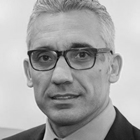 |
| INDUSTRIAL FORUM |
|
 |
| . |
|
|
Francesco Bonaccorso
BeDimensional, Italy
Invited - Industrial Forum
Francesco Bonaccorso is the Scientific Director of BeDimensional S.p.A. He gained the PhD from the University of Messina. In 2009 he was awarded a Royal Society Newton Interna-tional Fellowship at Cambridge University, and elected to a Research Fellowship at Hughes Hall, Cambridge, where he also obtained a MA. He was responsible in defining the ten years scientific and technological roadmap for the European Graphene Flagship, covering the role of Deputy of the Innovation for 6 years. He is member of the executive board of the Innova-tive Advanced Materials Initiative (IAM-I). He is/was involved in tens of European/National projects as coordinator or principal investigator. He is author of 17 patent families and more than 230 publications that have been cited more than 44100 times, with an H-index of 73. He delivered more than 250 invited presentations worldwide. He was featured as 2016 Emerging Investigator by J. Mater. Chem. A and in 2019 by ChemPlusChem. In 2018 he was recog-nized as Highly cited Scientist by Clarivate Analytics. In 2019 he received the Magister Pe-loritanus by Accademia Peloritana dei Pericolanti and ExAllievi Eccellenti by the University of Messina. He co-founded Cambridge Graphene Ltd and BeDimensional S.p.A.
|
|
|
|
|
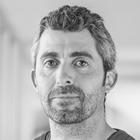 |
| INDUSTRIAL FORUM |
|
 |
| . |
|
|
Andrea Capasso
INL, Portugal
Invited - Industrial Forum
Dr. Andrea Capasso is a permanent Research Scientist and Principal Investigator at the International Iberian Nanotechnology Laboratory (INL) in Braga, Portugal, where he leads a portfolio of scientific and industrial projects on the synthesis, modification, and integration of graphene and other 2D materials into cutting-edge technologies. Andrea holds an MSc in Electronic Engineering from the University of Roma TRE and a PhD in Nanotechnology from Queensland University of Technology. Before joining INL in 2018 as a Marie Curie fellow, he conducted interdisciplinary research in Australia, Italy, and Korea, spanning nanoelectronics, energy, neurotechnology, and water treatment. He has published >80 peer-reviewed papers, co-authored 2 book chapters, and presented at >50 international conferences across four continents. In addition to coordinating and contributing to multiple international research projects, Andrea has overseen INL’s transversal line on Advanced Materials, aligning research priorities with industry needs
|
|
|
|
|
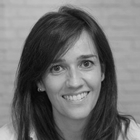 |
| INDUSTRIAL FORUM |
|
 |
| . |
|
|
Alba Centeno
Graphenea, Spain
Invited - Industrial Forum
Dr Alba Centeno. Project Manager at Graphenea with more than 10 years of experience in Graphene field and more than 15 years experience in R&D. She joined Graphenea in 2010 as Research Scientist and she was leading the R&D Team during 4 years. She is Chemistry and holds a PhD in the field of Carbon-based materials (INCAR-CSIC). She is author and co-author of more than 60 publications and several patents. Her research interest includes carbon-based materials, fabrication and characterization, with special emphasis on Graphene. She has a wide international network of collaborators and did several short stays in Centers such as the Microsystems Technology Laboratories of Massachusetts Institute of Technology (MIT), Institute Heterogeneous Materials Systems of Helmholtz-Zentrum Berlin für Materialien und Energie and ST Microelectronics in order to extend her expertise in Graphene integration and promote graphene into industrial applications.
|
|
|
|
|
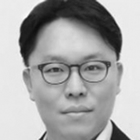 |
| INDUSTRIAL FORUM |
|
 |
| . |
|
|
Hyun-Jong Chung
A Barristor Company, South Korea
Invited - Industrial Forum
Hyun-jong Chung, CEO of A Barristor Company, holds a Ph.D in physics and has been researching graphene electronics since joining the Samsung Advanced Institute of Technology in 2006. He developed 6-inch wafer scale graphene-related processes to fabricate graphene RF transistors, and developed low-noise amplifiers using these transistors. To address the problem of graphene field-effect transistors that cannot be switched off due to the absence of a band gap, he invented a new electronic device that modulates the height of the graphene-Si Schottky barrier, published his findings in Science, and patented the device, which he named Barristor. He then moved to Konkuk University and continued to research barristor-based sensor electronics with dramatically higher response/sensitivity than conventional devices, and founded A Barristor Company to commercialize them. Graphene barristors can be adapted for a variety of sensors, from biosensors to photodetectors to gas detectors, by simply changing the doping materials on the graphene surface while maintaining the same device structure. A Barristor Company plans to develop this technology into a platform sensor service.
|
|
|
|
|
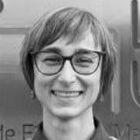 |
| INVITED |
|
 |
| . |
|
|
Martina Corso
UPV-CSIC/CFM, Spain
Invited – Plenary Session
Dr. Martina Corso is a Tenured Scientist at the Spanish National Research Council (CSIC) developing her research activity in the Centro de Física de Materiales in San Sebastian (Spain). After the master degree in physics at the University of Trieste (Italy), she received her PhD in the University of Zurich (Switzerland, 2006) on the study of hexagonal boron nitride nanostructures on transition metals. She was Alexander von Humboldt postdoctoral fellow at the Free University of Berlin (Germany, 2010), Ikerbasque Fellow at the University of the Basque Country (Spain, 2012) and recently Fulbright Scholar at the University of California Berkeley (USA, 2024). Her research activity combines scanning probe microscopy with photoemission techniques in UHV to characterize the physical and chemical properties of low dimensional materials. Currently she is sharing the facilities of the Nanophysics Laboratory group leading a research line focused on the bottom-up synthesis of functional molecular materials and graphene nanostructures and their electronic characterization at the atomic level.
|
|
|
|
|
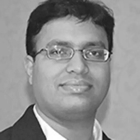 |
| WORKSHOP 7 |
|
 |
| . |
|
|
Saroj Prasad Dash
Chalmers , Sweden
Invited – Workshop 7: 2D Magnetism and Spintronics
Prof. Saroj Dash is leading the Spin and Quantum Devices Group at Chalmers University of Technology, Gothenburg, Sweden. He holds a PhD degree in Applied Physics in 2007 from the Max Planck Institute, Stuttgart, Germany and postdocs at Uni. of Twente and Uni. of Groningen in the Netherlands. He has made pioneering contributions to Spintronic devices using 2D Quantum Materials, particularly focusing on spin transport and interactions in graphene, semiconductors, magnets, topological quantum materials and their hybrid structures. He received Wallmarkska Prize 2023 by the Royal Swedish Academy of Science for "groundbreaking research on spintronic devices using 2D quantum materials." He has delivered over 100 plenary and invited talks at international conferences, colloquia, workshops, and schools.
|
|
|
|
|
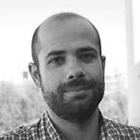 |
| INDUSTRIAL FORUM |
|
 |
| . |
|
|
Jose Manuel de la Cruz Sánchez
INBRAIN Neuroelectronics
, Spain
Invited - Industrial Forum
Dr. Jose de la Cruz is a physicist and Advanced Development Team Lead at InBrain Neuroelectronics, where he focuses on integrating 2D materials and active electronics into implantable medical devices. With a PhD from the Catalan Institute of Nanoscience and Nanotechnology (ICN2), his expertise lies in thin-film encapsulation and the development of advanced neural interfaces. His work bridges materials science, thin-film technology, and neuroscience, aiming to enhance the reliability and performance of next-generation neuroelectronic devices. Passionate about translating cutting-edge research into clinical solutions, he contributes to the design of high-density, flexible neural interfaces for therapeutic and diagnostic application
|
|
|
|
|
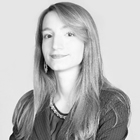 |
| WORKSHOP 2 |
|
 |
| . |
|
|
Lucia Gemma Delogu
Khalifa Univ (UAE) & Univ of Padua, Italy
Invited – Workshop 2: Sensors and Biomedical Applications
Lucia Gemma Delogu is head of the ImmuneNano-Lab at the Department of Biomedical Sciences of the University of Padua (UNIPD, Padua, Italy), www.delogulab.eu. After acquiring her experience in Material Science, Immunology, and Nanotoxicology at the University of Southern California (Los Angeles, USA) and Sanford-Burnham Institute (San Diego, USA), she served as Assistant Professor at the University of Sassari (Italy) and as Visiting Professor at the Technische Universität Dresden (TUD; Dresden, Germany). She is now a Visiting Associate Professor at New York University in the chemistry and biology divisions in Abu Dhabi. In addition, Prof. Delogu has been the Scientific Coordinator of four interdisciplinary European projects under HORIZON2020 (G.-IMMUNOMICS, CARBO-IMMAP, and SEE) on the immune interactions of nanomaterials towards biomedical applications involving over ten partners in Europe, the USA, and the middle east. Moreover, she currently coordinates the project MX-Map on developing MXenes for biomedical applications. She has received several awards, including the “Marie S. Curie Individual Fellow”, the “200 Young Best Talents of Italy 2011” from the Italian Ministry of Youth, and the “Bedside to Bench & Back Award” from the National Institutes of Health, USA. Since 2020, Prof. Delogu has been in charge of the Italian chapter and a member of the road map working group of the Advanced Material Global Pandemic & Future Preparedness Taskforce (AMPT) www.amptnetwork.com/. She introduced the “NanoImmunity-by-design” concept and pioneered the use of high-dimensional single-cell approaches in the context of 2D materials. Her works appeared in major journals, including Advanced Materials, Nature Communications, Nano Today, and ACS Nano. Cumulatively, her studies contribute to immunology, biomedicine, material science, and space science
|
|
|
|
|
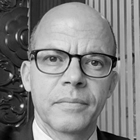 |
| WORKSHOP 2 |
|
 |
| . |
|
|
Bengt Fadeel
IMM | Karolinska Institutet
, Sweden
Invited – Workshop 2: Sensors and Biomedical Applications
Prof. Bengt Fadeel, M.D., Ph.D., is a Professor of Medical Inflammation Research at Karolinska Institutet, and Vice Chairman of the Institute of Environmental Medicine (Stockholm). Prof. Fadeel has been actively involved in several EU-funded nanosafety projects as well as the Health & Environment workpackage of the Graphene Flagship (2013-2023), and he is a current member of the European Innovation Council (EIC) funded nanomedicine projects PERSEUS and BACTERADIX. His research primarily addresses the interactions between engineered nanomaterials and the immune system. He is a Member of Academia Europaea (Class of Biochemistry and Molecular Biology) and a Fellow of the Academy of Toxicological Sciences (ATS).
|
|
|
|
|
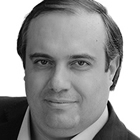 |
| INDUSTRIAL FORUM |
|
 |
| . |
|
|
Andrea Ferrari
Cambridge Graphene Centre / University of Cambridge, UK
Keynote - Industrial Forum
Andrea C. Ferrari earned a PhD in electrical engineering from Cambridge University, after a Laurea in nuclear engineering from Politecnico di Milano, Italy. He is Professor of Nanotechnology and the Director of the Cambridge Graphene Centre and of the EPSRC Centre for Doctoral Training in Graphene Technology. He is Fellow of Pembroke College, the American Physical Society, the Institute of Physics and the Materials Research Society. His research interests include nanomaterials growth, modelling, characterization, and devices. He was awarded the Royal Society Brian Mercer Award for Innovation, the Marie Curie Excellence Award, the Philip Leverhulme Prize, The EU-40 Materials Prize, The Royal Society Wolfson Research Merit Award. He is also the Chairman of the Executive Board of the EU Graphene Flagship
|
|
|
|
|
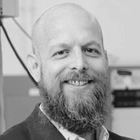 |
| WORKSHOP 5 |
|
 |
| . |
|
|
Felix R. Fischer
University of California Berkeley, USA
Invited – Workshop 5: Nanographenes and related 2D-based nanostructure
Dr. Fischer holds an appointment as Professor in the Department of Chemistry at the University of California Berkeley. He is a faculty scientist at the Lawrence Berkeley National Laboratory and a founding member of the Kavli Energy NanoSciences Institute and the Bakar Institute of Digital Materials for the Planet. His research interests focus on the rational design, deterministic assembly, and detailed investigation of the exotic physical phenomena emerging from quantum confinement effects in nanomaterials. Fischer leads a highly integrated multidisciplinary research program, founded on modular bottom-up organic synthesis of functional materials with precisely defined structure, their controlled assembly into hierarchically ordered architectures, and the evaluation of emergent physical properties across multiple length, time, and energy scales.
|
|
|
|
|
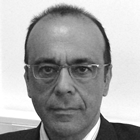 |
| INDUSTRIAL FORUM |
|
 |
| . |
|
|
Costas Galiotis
FORTH/ ICE-HT and University of Patras, Greece
Keynote - Industrial Forum
Costas Galiotis is the Principal Investigator (PI) of the ERC Advanced – Tailoring Graphene project. He is a Professor at the Department of Chemical Engineering (Univ. of Patras) and former Director of the Institute of Chemical Engineering Sciences (ICE-HT) which is one of the 7 academic research institutions of the Foundation of Research and Technology-Hellas (FORTH). In its over 26 years of operation FORTH/ ICE-HT has developed into a world-leading centre for the advancement of high quality scientific knowledge in the fields of material science and in the computer aided design and simulation of new materials and processes. It comprises of approximately 150 personnel and has a running yearly budget of 5 M€. Prof. Galiotis is also a member of the Board of Directors of FORTH (since July 2007). FORTH has been ranked as the first Research Centre in the field domain in Greece in 3 successive evaluations. Prof. Galiotis had an auspicious term of office as Director of the Institute in the years 2009-2014. Being also the coordinator of the Hellenic participation and national representative of “Graphene” he contributed in establishing the Graphene Center by joining the research forces of three FORTH institutes, ICE-HT, IESL and ICAM. Despite the Country's intense economic situation he expanded the Institute by literally setting the foundations to the Institute's new modern building that will house research laboratories.
|
|
|
|
|
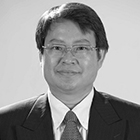 |
| KEYNOTE |
|
 |
| . |
|
|
Hong-Jun Gao
Chinese Academy of Sciences, China
Keynote – Plenary Session
Professor GAO Hongjun, an experimental condensed matter physicist, is a Group Leader in the Institute of Physics, Chinese Academy of Sciences (CAS). He also serves as the Dean, School of Physical Sciences, U-CAS. He obtained his Ph.D. degrees from Peking University in 1994. He was elected as a CAS Member in 2011 and Fellow of The World Academy of Sciences for the advancement of science in developing countries (TWAS) in 2012. He was elected as a Member of the German National Academy of Sciences in 2021.
Dr. GAO has made significant contribution to the field of low-dimensional quantum nanostructures via scanning tunneling microscopy/spectroscopy including the construction of novel quantum nanostructures and their physical properties. He has published more than 500 papers including 6 in Nature and Science. His total citations exceed 28000, and his H-index is 86. He has received numerous awards for his work, including awarded a Humboldt Research Award in 2010, the TWAS Prize in 2009, the Achievement in Asia Award (Robert Prize) of the Overseas Chinese Physics Association in 2008, the TAN KAH KEE Science Award in Mathematics and Physics, 2010, the Science and Technology Awards of the Ho Leung Ho Lee, 2012, and the Outstanding Science and Technology Achievement Prize of the Chinese Academy of Sciences, 2013.
|
|
|
|
|
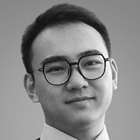 |
| WORKSHOP 9 |
|
 |
| . |
|
|
Kangkang Ge
Université Paul Sabatier, France
Invited – Workshop 9: Energy Applications of 2D Materials
Dr. Kangkang Ge has been engaged in research on energy storage materials since 2014. He obtained his Master’s degree in Polymer Chemistry and Physics from the University of Science and Technology of China in 2020, where his work focused on quasi-solid-state electrolytes for high-power energy storage devices (supercapacitors). He subsequently earned his Ph.D. in Materials Science from the Université de Toulouse (France). His doctoral research was recognized with the prestigious National Thesis Award (C’Nano, France, 2024) and the Prix de Chimie de l’Université de Toulouse (2025). Dr. Ge is currently based at the Université de Toulouse, where he focuses on advanced characterization techniques for energy storage materials
|
|
|
|
|
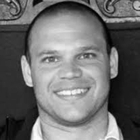 |
| WORKSHOP 6 |
|
 |
| . |
|
|
Brian D. Gerardot
Heriot-Watt University, UK
Invited – Workshop 6: Photonics, Plasmonics and Phononics
Prof. Brian Gerardot holds a Chair in Emerging Technologies from the Royal Academy of Engineering and a Wolfson Merit Award from the Royal Society. Previously, he obtained a BSc in Materials Science from Purdue University (1998), a PhD from UC Santa Barbara (2004), was a post-doctoral researcher at HWU (2004-2006), held a Fellowship at HWU from the Royal Society of Edinburgh (2006-2009) and a University Research Fellowship from the Royal Society (2009 - 2017).
|
|
|
|
|
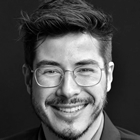 |
| WORKSHOP 7 |
|
 |
| . |
|
|
Marcos Guimaraes
University of Groningen, The Netherlands
Invited – Workshop 7: 2D Magnetism and Spintronics
Marcos H. D. Guimarães is an Associate Professor at the Zernike Institute for Advanced Materials (Faculty of Science and Engineering) of the University of Groningen. He is the principal investigator (PI) of the research group Opto-Spintronics of Quantum Materials, studying the interplay between light, electron charge and spin, in structures which are just a few atoms thick. In 2020 Marcos joined the Young Academy Groningen, where he aims to help and broaden the science outreach programs at the University of Groningen and the North of the Netherlands.
|
|
|
|
|
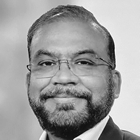 |
| INDUSTRIAL FORUM |
|
 |
| . |
|
|
Kamesh Gupta
India Graphene Engineering & Innovation Centre, India
Invited - Industrial Forum
Kamesh is a strategist, business and technology leader with more than thirty years of global, multi-sector expertise in advancing innovation, commercialization, and transformative partnerships across Graphene & Advanced Materials, Aerospace & Defence, Industrial & Automotive, Public Policy, and Health Care Technology.
Recognized for building high-impact business, securing strategic contracts, and leading world-first technology breakthroughs. Pioneered the commercialization of Graphene technology, achieving 7X revenue growth, positioning Graphene as the next-gen technology for global good.
Spearheaded M&A, joint ventures, technology transfers, business and global market expansions at scale. Curated startups established nationally significant Centre of Excellence and bi-lateral collaborations. Anchored India’s 1st government-funded Graphene Centre of Excellence, catalyzing global industry-academia collaborations including with the University of Manchester.
Kamesh anchors India’s 2nd government-supported Graphene translational research and commercialization CoE. He also drives technology-led transformation in healthcare. His work spans across commercialization, innovation, automation, and leverage emerging technologies including agentic AI, Living Labs and integrated skills for shaping the workforce of the future.
A Chevening Fellow (University of Oxford) and alumnus of IIM Ahmedabad, Kamesh serves on several boards across Aerospace & Defence, IT, and Advanced Materials. A transformational leader, committed to advancing sustainability for societal and global good. deep-tech innovation, and globally impactful business strategies.
|
|
|
|
|
 |
| INDUSTRIAL FORUM |
|
 |
| . |
|
|
Kari Hjelt
Chalmers Industriteknik, Sweden
Invited - Industrial Forum
Kari has 20 years experience in building up corporate research and venture activities. He has been the founder and CEO of several start-up companies, as well as worked as director at Nokia Ventures Organization and at Nokia Research Centre. Dr. Kari Hjelt holds a PhD in Engineering Physics from Helsinki University of Technology, as well as an Executive MBA from the London Business School. Currently Kari works as Head of Innovation at the Graphene Flagship, where he also is a member of the Management Panel and the Executive Board
|
|
|
|
|
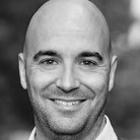 |
| WORKSHOP 7 |
|
 |
| . |
|
|
Luis Hueso Arroyo
CIC nanoGUNE, Spain
Invited – Workshop 7: 2D Magnetism and Spintronics
Luis E. Hueso is currently an Ikerbasque Research Professor at CIC nanoGUNE (San Sebastian) since 2008. He is the leader and founder of the center's Nanodevices group, created in the same year. Since June 2017, he is also the scientific director of the Unit of Excellence Maria de Maeztu awarded to his institution, a position he will hold for a further four years starting in January 2022.
|
|
|
|
|
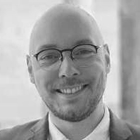 |
| WORKSHOP 1 |
|
 |
| . |
|
|
Bjarke S. Jessen
Technical University of Denmark (DTU), Denmark
Invited – Workshop 1: Twistronics, Moiré Physics and Topological Phenomena
Bjarke S. Jessen is a researcher at the Technical University of Denmark (DTU), with a background in two-dimensional materials and nanotechnology. His work focuses on 2D heterostructures, moiré patterns, and the electronic properties of graphene and other layered materials. He has held research positions at Columbia University and DTU, contributing to projects within the EU Graphene Flagship and Center for Nanostructured Graphene. Bjarke has published over 30 peer-reviewed papers, with a particular focus on charge-transfer processes and nanoscale optical phenomena. He is currently focused on the properties of nanoscale contacts and on scalable superlattice technologies.
|
|
|
|
|
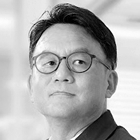 |
| KEYNOTE |
|
 |
| . |
|
|
Moon-Ho Jo
Pohang University of Science and Technology (POSTECH), South Korea
Keynote – Plenary Session
Moon-Ho Jo is Director of Center for van der Waals Quantum Solids, Institute for Basic Science (IBS) and Mueunjae Chair Professor of Pohang University of Science and Technology (POSTECH). Moon-Ho received his Ph.D. in Materials Science at University of Cambridge (2001), with a dissertation on electron-spin tunneling in half-metallic manganites. He joined the faculty of Department of Materials Science and Engineering at POSTECH in 2004 after a postdoctoral fellowship at Harvard University, where he studied mesoscopic electron transport in single molecules. Earlier in his faculty career, he had worked on epitaxial growth of alloy semiconductor nanowires and nanowire photonics. Later, he was working on epitaxial growth of novel van der Waals heterostructures and related photophysics, therein. In 2022, he set out the IBS Center, working toward epitaxial molding of novel van der Waals lattices for the new quantum technology material platforms. He was appointed as a Fellow of The Korea Academy of Science and Technology in 2016. He is currently an Editorial Advisory Board member of Nano Letters.
|
|
|
|
|
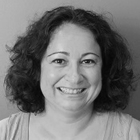 |
| WORKSHOP 3 |
|
 |
| . |
|
|
Catherine Journet-Gautier
Université Claude Bernard Lyon 1 / CNRS, France
Invited – Workshop 3: 2DM Chemistry and composites
Catherine Journet-Gautier is a professor at Claude Bernard University Lyon 1, where she leads the “Low-Dimensional Materials” team at the Multimaterials and Interfaces Laboratory (LMI). She holds a PhD in Materials Science from the University of Montpellier (1998), with a focus on carbon nanotube synthesis. After a postdoctoral stay at the Max Planck Institute for Solid State Physics in Stuttgart, she joined the University of Lyon as an associate professor, initiating work on nanomaterial synthesis. Since 2011, she has been a full professor at LMI, working mainly on the synthesis and characterization of 1D and 2D inorganic nanostructures, with a particular interest in hexagonal boron nitride nanosheets. She serves on the Senior Advisory Panel of JPhys Materials and the editorial board of Nanomaterials
|
|
|
|
|
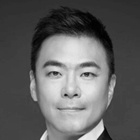 |
| INVITED |
|
 |
| . |
|
|
Jeehwan Kim
MIT, USA
Invited – Plenary Session
Professor Kim joined the Department of Mechanical Engineering faculty in 2015 and DMSE as a joint faculty member in 2016. Before MIT, he was a research staff member at IBM’s Thomas J. Watson Research Center, conducting research in photovoltaics, 2D materials, graphene, and advanced complementary metal-oxide semiconductor devices. Professor Kim has been named a Master Inventor at IBM, with more than 100 patent filings in five years. He received a BS from Hongik University in Seoul, South Korea, an MS from Seoul National University, and a PhD from the University of California, Los Angeles, all in materials science and engineering.
|
|
|
|
|
 |
| WORKSHOP 6 |
|
 |
| . |
|
|
Keun Su Kim
Yonsei University, South Korea
Invited – Workshop 6: Photonics, Plasmonics and Phononics
Keun Su Kim is an Underwood Distinguished Professor of Physics at Yonsei University, South Korea. He is an experimental condensed matter physicist interested in the study of electronic structures with angle-resolved photoemission spectroscopy (ARPES). He completed his PhD from Yonsei University and spent 3 years as a postdoctoral researcher at Lawrence Berkeley National Lab, United States. In 2013, he started an independent research group as an Assistant Professor of Physics at Pohang University of Science and Technology (POSTECH), and then moved to Yonsei University in 2017. Since 2021, he has served as the director of Center for Bandstructure Engineering funded by National Research Foundation of Korea
|
|
|
|
|
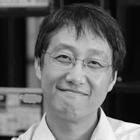 |
| PLENARY |
|
 |
| . |
|
|
Philip Kim
Harvard University, USA
Plenary Talk
Philip Kim is a professor of physics and applied physics at Harvard University who works with experimental physics in low-dimensional quantum materials. He earned his B.S. in physics from Seoul National University in 1990 and his Ph.D. in applied physics from Harvard University in 1999. Before joining Harvard, he was a Miller Postdoctoral Fellow in Physics at the University of California, Berkeley, and a faculty member at Columbia University. Professor Kim’s research focuses on mesoscopic investigations of transport phenomena, particularly the electric, thermal, and thermoelectric properties of low-dimensional nanoscale materials, such as carbon nanotubes, graphene, and other two-dimensional materials and their heterostructures. He has received numerous honors and awards, including the Benjamin Franklin Medal in Physics (2023) and the Oliver E. Buckley Prize from the American Physical Society (2014). Professor Kim is an elected member of the U.S. National Academy of Sciences and the American Academy of Arts and Sciences.
|
|
|
|
|
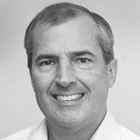 |
| INVITED |
|
 |
| . |
|
|
Steven Koester
University of Minnesota, USA
Invited – Plenary Session
Steven J. Koester is the Russell J. Penrose Professor of Nanotechnology at the University of Minnesota, and Director of the Minnesota Nano Center. He received the Ph.D. degree in 1995 from the University of California, Santa Barbara. From 1997 to 2010, he was a research staff member at the IBM T. J. Watson Research Center. Since 2010, Dr. Koester has been a Professor of Electrical & Computer Engineering at the University of Minnesota where his research focuses on novel electronic, photonic, and sensing devices, with an emphasis on those using 2D materials. Dr. Koester has authored or co-authored over 300 technical publications and conference presentations, 7 volumes, 4 book chapters, and holds 80 United States patents. He is a Fellow of the IEEE and Optica.
|
|
|
|
|
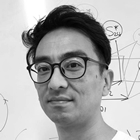 |
| WORKSHOP 4 |
|
 |
| . |
|
|
Mikito Koshino
Osaka University, Japan
Invited – Workshop 4: Theory of 2D Materials and Devices Simulation
Prof. Koshino is a Distinguished Professor of the Department of Physics at the University of Osaka. He received his Ph.D. degree from University of Tokyo, Japan in 2003. He was a research associate in Tokyo Institute of Technology from 2003 to 2010, and he was an associate professor in Tohoku University from 2010 to 2016. Since 2016, he has taught in the University of Osaka. His current research is focused on the theoretical study on the physical properties of 2D materials and topological materials.
|
|
|
|
|
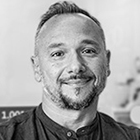 |
| INVITED |
|
 |
| . |
|
|
Kostas Kostarelos
ICN2/ICREA and University of Manchester, Spain
Invited – Plenary Session
Prof. Kostas Kostarelos read Chemistry at the University of Leeds and obtained his Diploma in Chemical Engineering and his PhD from the Department of Chemical Engineering at Imperial College London, studying the steric stabilization of liposomes using block copolymer molecules. Currently, Kostarelos is Professor and Chair of Nanomedicine at the Faculty of Biology, Medicine and Health, leads the Nanomedicine Lab and is a member of the National Graphene Institute and the Manchester Cancer Research Centre, all at the University of Manchester. He has been invited to Fellowships with the Royal Society of Chemistry, Royal Society of Medicine and Royal Society of Arts, all in the UK. He was awarded the Japanese Society for the Promotion of Science (JSPS) Professorial Fellowship in 2010. In 2019 he joined the ICN2 as Severo Ochoa Distinguished Professor and Group Leader, while retaining his appointments and research team at the University of Manchester.
|
|
|
|
|
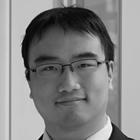 |
| WORKSHOP 1 |
|
 |
| . |
|
|
Xiao Li
City University of Hong Kong, Hong Kong
Invited – Workshop 1: Twistronics, Moiré Physics and Topological Phenomena
Dr. Xiao Li is an Associate Professor at Department of Physics, City University of Hong Kong (CityUHK). He received his bachelor’s degree from Peking University in 2008 and PhD in Physics from the University of Texas at Austin in 2014. Between 2015 and 2018, he worked as a postdoc at Condensed Matter Theory Center, University of Maryland, College Park. Prof. Li joined CityUHK as an Assistant Professor in 2019 and was promoted to Associate Professor in 2024. Dr. Li is mainly interested in novel phases of matter arising from the intricate interplay of topology, disorder, and electron-electron interactions. His current research focuses on two main directions: exploring novel electronic phases in moiré heterostructures, where the precise stacking of two-dimensional materials creates unique quantum environments, and developing comprehensive theoretical frameworks for understanding exciton behavior in two-dimensional materials.
|
|
|
|
|
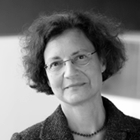 |
| KEYNOTE |
|
 |
| . |
|
|
Annick Loiseau
CNRS-ONERA, France
Keynote – Plenary Session
Annick Loiseau is Director of Research, leading the Low dimension materials group at the Laboratoire d’Etude des Microstructures, a joint Research Unit CNRS-ONERA. She joined the Solid State Physics Laboratory headed by François Ducastelle at ONERA in 1980 and received her Doctorat d’Etat in Physics from University Paris 6 (today Sorbonne University) in 1985. From 1998 she has been pioneering and heading the first federative Research programs on nanosciences at ONERA and at CNRS national and international research networks focused successively on carbon nanotubes, graphene, 2D materials and van der Waals heterostructures (present acronym IRN HOWDI). She is recipient of the Grand prix (Great Price) ‘Aluminium Péchiney’ of the French Academy of Sciences, the Condensed Matter Physics price (Ancel price) of the French Physics Society, the silver medal of physics of CNRS. She is named Knight of the Legion of Honor and Officer of the National Order of Merit by the French Ministry of Research. Her research is on experimental condensed matter physics with over 400 publications and focused from early 90’s on growth, structure and spectroscopic properties in reduced dimension systems
|
|
|
|
|
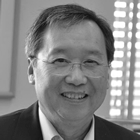 |
| PLENARY |
|
 |
| . |
|
|
Steven Louie
UC Berkeley, USA
Plenary Talk
Steven G. Louie is a Distinguished Professor of the Graduate School at the University of California, Berkeley (UC Berkeley) and a Senior Faculty Scientist at Lawrence Berkeley National Laboratory. He received his Ph.D. in physics from UC Berkeley in 1976. After having worked at the IBM Watson Research Center, Bell Labs, and U of Penn, he joined the UC Berkeley faculty in 1980. He is an elected member of the National Academy of Sciences, American Academy of Arts & Sciences, Academia Sinica (Taiwan), and Chinese Academy of Sciences (foreign member), as well as fellow of the American Physical Society (APS), American Association for the Advancement of Science, and Materials Research Society (MRS). He is a recipient of the APS Rahman Prize, APS Davisson-Germer Prize, APS Dresselhaus Prize, MRS Materials Theory Award, Foresight Institute’s Feynman Prize, and UC Berkeley’s Berkeley Citation, among others. Louie’s research is in theoretical condensed matter physics, with over 700 publications. He is known for his pioneering development of the ab initio GW method and for his studies of novel bulk and reduced-dimensional systems
|
|
|
|
|
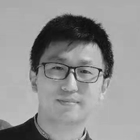 |
| WORKSHOP 1 |
|
 |
| . |
|
|
Xiaobo Lu
Peking University, China
Invited – Workshop 1: Twistronics, Moiré Physics and Topological Phenomena
Dr. Xiaobo Lu obtained his PhD degree in 2017 from the Institute of Physics of the Chinese Academy of Sciences (IOP, CAS). After graduation, he moved to ICFO and ETH Zurich subsequently, working as a postdoctoral researcher. In November 2021, he joined Peking University as an assistant professor and a group leader of the 2D quantum material lab. His current research interest is focused on the strong correlation, superconductivity and novel band topology in graphene and other layered materials.
|
|
|
|
|
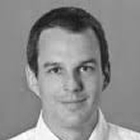 |
| WORKSHOP 4 |
|
 |
| . |
|
|
Mathieu Luisier
ETHZ, Switzerland
Invited – Workshop 4: Theory of 2D Materials and Devices Simulation
Since 2022, Mathieu Luisier is Full Professor of Computational Nanoelectronics at ETH Zurich, Switzerland. During his PhD at ETH Zurich (2003-2007) he started the development of a state-of-the-art quantum transport simulator called OMEN. After graduation, he joined in 2008 the Network for Computational Nanotechnology at Purdue University, USA, as a research assistant professor. In 2011 he returned to ETH Zurich to become Assistant and then Associate Professor. His current research interests focus on the modeling of nanoscale devices, such as advanced transistors photo-detectors, resistive switching memory cells, or quantum computing systems.
|
|
|
|
|
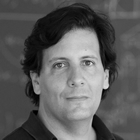 |
| WORKSHOP 8 |
|
 |
| . |
|
|
Miguel M. Ugeda
DIPC, Spain
Invited – Workshop 8: Advanced Characterization of 2DM and heterostructures
Miguel M. Ugeda is an Ikerbasque Research Professor at the Donostia International Physics Center (DIPC) in San Sebastián, Spain. He specializes in condensed matter physics, with a focus on two-dimensional materials, superconductivity, and exotic quantum electronic phases. He earned his PhD in Physics from the Universidad Autónoma de Madrid in 2011. Later, he was Postdoctoral Fellow in Physics from University of California, Berkeley during 2012-2015. Ugeda is recipient of the ERC Starting grant (2017) and the ERC Consolidator Grant (2022).
|
|
|
|
|
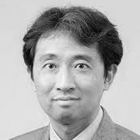 |
| INVITED |
|
 |
| . |
|
|
Tomoki Machida
University of Tokyo, Japan
Invited – Plenary Session
|
|
|
|
|
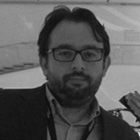 |
| INDUSTRIAL FORUM |
|
 |
| . |
|
|
Anastasios Manikas
University of Patras, Greece
Invited - Industrial Forum
His research interests span in all aspects in the development and the physicochemical characterization of functional nanomaterials. His mainly expertise focused on vibrational spectroscopy and particularly Raman spectroscopy that has utilized for the characterization of many different types of materials. Currently he focusses on the one hand to the synthesis of high-quality graphene through CVD and on the other hand on the development and the characterization of multifunctional structures exploiting the properties of 2DMs. He adopts a holistic approach, which is based on the application of spectroscopic and microscopic techniques as unique tools to correlate materials properties on the macro- micro- and nanoscale with particular emphasis to their thermodynamic behaviour. Moreover, he emphases on the integration of graphene and related materials for the development of multi-functional systems, such as lightweight composites for EMI shielding applications and coatings for protection against UV-vis radiation and permeation of gases/vapours, and sustainable composites enhanced with graphene and other 2DM. By incorporating concepts of physics, chemistry, materials science and nanotechnology, his research targets several applications that will impact our society in the future. He has co-authored around 45 publications in international peer-reviewed journals (h-index: 21), more than 50 contributions to international and national conferences.
|
|
|
|
|
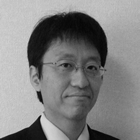 |
| WORKSHOP 6 |
|
 |
| . |
|
|
Kazunari Matsuda
Kyoto University, Japan
Invited – Workshop 6: Photonics, Plasmonics and Phononics
Kazunari Matsuda is a Professor at Kyoto University. He received his BS, MS and PhD degrees in applied physics from Nagoya University in 1993, 1995, and 1998, respectively. He joined the research group of KAST as a researcher in 1998 and also the Precursory Research for Embryonic Science and Technology Program (PRESTO) of Japan Science and Technology Agency (JST) in 2002. He joined as Associate Professor at Kyoto University in 2004, and promoted full Professor in 2010. He is Director in Integrated Research Center for Carbon Negative Science (ICaNS), and Vice Director in Institute of Advanced Energy, Kyoto University. His current research interests include nano-optics, and solid state physics of nano-materials.
|
|
|
|
|
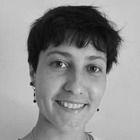 |
| WORKSHOP 8 |
|
 |
| . |
|
|
Florie Mesple
University of Washington, USA
Invited – Workshop 8: Advanced Characterization of 2DM and heterostructures
Florie is currently a postdoctoral scholar at University of Washington. She received her pHD in physics at the Université Grenoble Alpes (2022), during which she focused on studying the electronic properties of bilayer graphene - whether twisted, heterostrained, or with defects - using Scanning Tunneling Microscopy. Her most recent work is focused on probing by STM the physics of twisted Molybdenium di-Telluride in which the fractional quantum anomalous Hall effect has been recently measured.
|
|
|
|
|
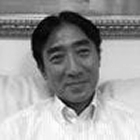 |
| INDUSTRIAL FORUM |
|
 |
| . |
|
|
Kazuo Muramatsu
Incubation Alliance.Inc., Japan
Invited - Industrial Forum
Kazuo Muramatsu is the CEO of Incubation Alliance, Inc. (InALA) based in Kobe, Japan. He completed his studies in materials sciences at Toyohashi University of Technology in 1985. At university, he was engaged in research on graphite intercalation compounds, and also collaborated with Dr. Ralph Setton(CNRS), one of the pioneers of graphene. He joined Kobe Steel, Ltd. and was engaged in the development of “new carbon” using Hot Isostatic Pressing (HIP) equipment, and worked on the development and commercialization of graphene electrodes for hydrogen generators, carbon substrates for HDD and substrates for semiconductor processes. He founded InALA in 2007 and is promoting the development mass synthesis methods for graphene and commercialization of Graphene Flower® products.
|
|
|
|
|
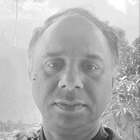 |
| WORKSHOP 10 |
|
 |
| . |
|
|
Sainathan Nagarathanam
Tata Steel Limited, India
Invited – Workshop 10: XXXX
|
|
|
|
|
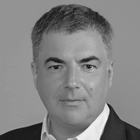 |
| PLENARY |
|
 |
| . |
|
|
Kostya Novoselov
NUS, Singapore
Plenary Talk
Professor Sir Konstantin ‘Kostya’ Novoselov FRS was born in Russia in August 1974. He has both British and Russian citizenship. He is best known for isolating graphene at The University of Manchester in 2004, and is an expert in condensed matter physics, mesoscopic physics and nanotechnology. He was awarded the Nobel Prize for Physics in 2010 for his achievements with graphene. Kostya is Langworthy Professor of Physics and Royal Society Research Professor at The University of Manchester.He graduated from The Moscow Institute of Physics and Technology and undertook his PhD studies at The University of Nijmegen in the Netherlands before moving to The University of Manchester in 2001. Professor Novoselov has published more than 250 peer-reviewed research papers
|
|
|
|
|
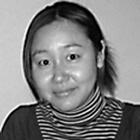 |
| WORKSHOP 8 |
|
 |
| . |
|
|
Hanako Okuno
CEA-Grenoble, France
Invited – Workshop 8: Advanced Characterization of 2DM and heterostructures
Hanako OKUNO graduated with a Master Degree in Materials Science and engineering from Tokyo Institute of Technology in 1999. She received PhD in Materials Science from Louvain catholic University in Belgium, entitled “Synthesis and characterization of carbon based materials” in 2006. She worked in advanced microscopy to develop quantitative chemical atomic resolution imaging on semiconductor during her post-doc fellows at NIMS in Japan and CEA in France and then joined CEA LITEN in 2009 where she worked on the integration of CNTs in microelectronic device applications. Since 2012, she has been working in Laboratory of advanced electron microscopy in CEA INA, whereas she specializes advanced microscopy for two-dimensional material study using low-voltage aberration corrected TEM techniques.
|
|
|
|
|
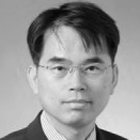 |
| WORKSHOP 7 |
|
 |
| . |
|
|
Je-Geun Park
Seoul National University, South Korea
Invited – Workshop 7: 2D Magnetism and Spintronics
|
|
|
|
|
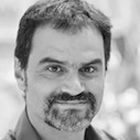 |
| WORKSHOP 5 |
|
 |
| . |
|
|
Nacho Pascual
CIC NanoGUNE, Spain
Invited – Workshop 5: Nanographenes and related 2D-based nanostructure
Nacho Pascual obtained a PhD in Physical Sciences in 1998 from the Universidad Autónoma de Madrid, Department of Condensed Matter Physics. His studies about quantum electronic transport through atoms and molecules using scaning tunnelling microscopy contributed to the settlement of a new research field in nanoelectronics. In 1999, he moved to Berlin, to the Fritz-Haber Institute der Max-Planck Gesselschaft, hosting there a Marie Curie Fellowship to investigate the rules behind single-molecule vibrational spectroscopy, a newly developed method to characterize chemically absorbates with STM. After a short stay in Barcelona, at the Institut de Ciencia de Materiales (ICMAB-CSIC), hosting a Ramon y Cajal Fellowship, he moved back to Berlin, now to the Freie Universität, first (2004) as a Junior Professor and posteriorly (2008) as full Professor. There, he expanded his research in the field of Molecular Physics at Surfaces, dealing with various molecular-scale phenomena, from molecular switching behaviour and charge transfer processes, to magnetism and superconductivity. In 2012, he joined nanoGUNE as Ikerbasque Research Professor and Group Leader of the Nanoimaging group.
|
|
|
|
|
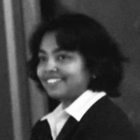 |
| WORKSHOP 3 |
|
 |
| . |
|
|
Chandrani Pramanik
Tata Steel Limited, India
Invited – Workshop 3: 2DM Chemistry and composites
|
|
|
|
|
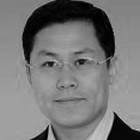 |
| INVITED |
|
 |
| . |
|
|
Wencai Ren
Institute of Metal Research, Chinese Academy of Sciences, China
Invited – Plenary Session
Dr. Wencai Ren is a professor in materials science at the Institute of Metal Research, Chinese Academy of Sciences. His research interests mainly focus on the synthesis of graphene and other 2D materials and their applications in optoelectronics, energy storage, thermal management, and membrane technology. Prof. Ren has published over 200 peer-refereed papers with a total citation over 40,000 times, owned more than 100 granted patents, and co-founded 3 graphene companies. He currently serves as the Editor-in-Chief of IOP 2D Materials.
|
|
|
|
|
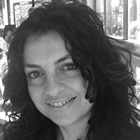 |
| INVITED |
|
 |
| . |
|
|
Elisa Riedo
NYU, USA
Invited – Plenary Session
Elisa Riedo is the Herman F. Mark Chair Professor of Chemical and Biomolecular Engineering at the New York University Tandon School of Engineering, and the co-director of the NYU initiative NanoBioX. She is also Professor of Physics and Mechanical Engineering. Previously, Riedo was Professor of Physics at the Georgia Institute of Technology from 2003 to 2015. She is well known for her pioneering work in thermal scanning probe lithography (tSPL), a novel and sustainable nanofabrication technique with applications in biomedicine, nanoelectronics, and magnetic materials. She has also made fundamental contributions in nanomechanics, graphene, diamene, 2D materials, and nano- confined water. She is widely published and has received multiple grants from the National Science Foundation, the Department of Energy, ARPA-H, and the Department of Defense. Dr. Riedo is an elected Fellow of the American Physical Society for her atomic force microscopy studies of nanoscale friction, liquid structure and nanotube elasticity, and the invention of thermochemical nanolithography. In 2023, she has been elected member of the Academia Europaea.
|
|
|
|
|
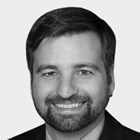 |
| WORKSHOP 10 |
|
 |
| . |
|
|
Gordon Rinke
AMO GmbH, Germany
Invited – Workshop 10: XXXX
Dr Gordon Rinke obtained his PhD in Materials Science from the EPFL Lausanne, Switzerland in 2013. After spending over 6 years in the industry for an organic semiconductor tool manufacturer as a lead process engineer, he joined the AMO GmbH in Aachen, Germany in 2021 as Project Manager for the European 2D Experimental Pilot Line Project and became deputy of the graphene electronics group. His background covers the nanostructure growth and fabrication of organic and inorganic materials and the process development and optimization of prototype machines.
|
|
|
|
|
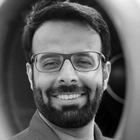 |
| WORKSHOP 3 |
|
 |
| . |
|
|
Yarjan Abdul Samad
Khalifa University, UAE
Invited – Workshop 3: 2DM Chemistry and composites
Dr Yarjan Abdul Samad is an Assistant Professor of Aerospace Engineering at Khalifa University, UAE and a Senior Research Associate and Senior Teaching Fellow at The University of Cambridge. He has served as the Chief Technology Advisor to a climate change company called Levidian based out of Cambridge, UK, which is transforming waste gas resources to graphene and hydrogen. His research work is on bottom-up and top-down production of graphene & related materials crystals. He is interested in employing these materials for technologies for Space in particular and Aerospace in general. He was among the team of scientists on European Space Agency (ESA)’s Zero Gravity flights who were the first to test Graphene in microgravity. He has also tested graphene-based materials for applications in space using Sounding Rockets. He is a member of the Science Team of Rashid Rover, which is due for launch within 2026, by MBRSC, UAE. He is the recipient of several awards such as Young Leaders Award 2020 by the UK’s Young Professional Society, The Innovator of The Year by the technology development company, Pakistan foreign affairs award for twenty-five under the age of 40 talents of Pakistani origin abroad, Nano Today Best Scientific Presentation, and many other Best Scientific Talks awards at international conferences.
|
|
|
|
|
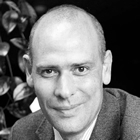 |
| WORKSHOP 3 |
|
 |
| . |
|
|
Paolo Samorì
Université de Strasbourg, France
Invited – Workshop 3: 2DM Chemistry and composites
Paolo Samorì is Distinguished Professor at the Université de Strasbourg, Former Director of the Institut de Science et d’Ingénierie Supramoléculaires (ISIS) and Director of the Nanochemistry Laboratory. He is Member of the Académie des Technologies, Member of the German National Academy of Science and Engineering (ACATECH), Foreign Member of the Royal Flemish Academy of Belgium for Science and the Arts (KVAB), Fellow of the Royal Society of Chemistry (FRSC), Fellow of the European Academy of Sciences (EURASC), Member of the Academia Europaea, Member of the European Academy of Sciences and Arts, Socio corrispondente, Sezione di Scienze Matematiche, Fisiche e Naturali - Accademia Nazionale di Scienze Lettere e Arti di Modena, Fellow of the Materials Research Society (MRS), Fellow of the University of Strasbourg Institute for Advanced Study (USIAS), Senior Member of the Institut Universitaire de France (IUF).
He has obtained a Laurea (master’s degree) in Industrial Chemistry at University of Bologna in 1995. In 2000, he has received his PhD in Chemistry from the Humboldt University of Berlin (Prof. J. P. Rabe). Before joining ISIS, he has been permanent research scientist at Istituto per la Sintesi Organica e la Fotoreattività of the Consiglio Nazionale delle Ricerche of Bologna. He trained over 130 people among Master Students, Ph.D and Post Docs out of which 35 are now Professor in major universities or resarch centers in France, Italy, Spain, Sweden, Belgium, US, Canada, China, Brazil, etc. He has published 490+ papers on nanochemistry, supramolecular sciences, materials chemistry, and scanning probe microscopies with a specific focus on graphene and other 2D materials as well as functional organic/polymeric and hybrid nanomaterials for application in optoelectronics, energy and sensing. He has been awarded numerous prestigious prizes, including the E-MRS Graduate Student Award (1998), the MRS Graduate Student Award (2000), the IUPAC Prize for Young Chemists (2001), the Vincenzo Caglioti Award (2006), the Nicolò Copernico Award (2009), the Guy Ourisson Prize (2010), the ERC Starting Grant (2010), the CNRS Silver Medal (2012), the Catalán-Sabatier Prize (2017), the Grignard-Wittig Lectureship (2017), the ERC Proof of Concept Grant (2017), the RSC Surfaces and Interfaces Award (2018), the Blaise Pascal Medal in Materials Science (2018), the Pierre Süe Prize (2018), the ERC Advanced Grant (2019), the “Étoiles de l’Europe” Prize (2019), the ERC Proof of Concept Grant (2020), the RSC/SCF Joint Lectureship in Chemical Sciences (2020), the Prix André Collet (2022) and the Mid-Career Researcher Award by IUMRS-ICEM (2024) and "Prof. Luigi Tartufari" Award – Accademia Nazionale dei Lincei (2024).
He is Associate Editor of ACS Nano (ACS) and Member of the Executive Advisory Board of Advanced Materials and of Avanced Sensor Research, member of the Editorial Advisory Boards of Small, ChemNanoMat, member of the Editorial Board of ChemPlusChem, Electron, Responsive Materials, MGE Advances, Chemistry Europe, and SmartMat (Wiley-VCH), Chemical Society Reviews, Nanoscale Horizons, Nanoscale, RSC Applied Interfaces, Materials Advances, Chemical Communications and Journal of Materials Chemistry C (RSC), and BMC Materials (Springer Nature).
|
|
|
|
|
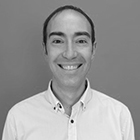 |
| INDUSTRIAL FORUM |
|
 |
| . |
|
|
Ugo Sassi
Levidian, UK
Invited - Industrial Forum
Ugo Sassi is a manager and innovator who loves creating, testing and exploring new graphene technologies. He has 13 years’ experience in graphene production, functionalization, processing and applications. He has a PhD in Graphene from The University of Cambridge, where he worked with IBM, Philips, Samsung and Nokia Bell Labs. Following his PhD, he joined Nokia Bell Labs for 5 years as a senior researcher and principal investigator in the graphene field. He then worked with Danaher, developing ink-jet printing technologies and boosting them from Technology Readiness Level (TRL) 3 to TRL 6. Ugo holds 13 patents and 25 publications in high-impact factor, peer-reviewed journals, such as Nature Communications.
|
|
|
|
|
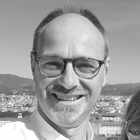 |
| INDUSTRIAL FORUM |
|
 |
| . |
|
|
Tom Schram
IMEC, Belgium
Invited - Industrial Forum
Tom Schram is the lead integrator for the imec exploratory devices program focusing on fab-based 2D material integration. He received his M.Sc. and Ph.D. degree in chemical engineering from the free university of Brussels (VUB), Brussels, Belgium, in 1994 and 1999, respectively. After a short post-doctoral position, he joined imec in 2001. Since the beginning he has been working as integrator. Initially, he was active in different Si-based CMOS areas, such as contacts, replacement metal gates, DRAM PERI devices, SiGe, and finFET integration. Since 2017 his main research topic has been fab based 2D material integration. Since the beginning he is also an active member of the EU 2D-Pilot Line [2D-PL] (2024-2028) and the preceding 2D-EPL (2020-2024). The 2D-PL aims to further strengthen the European ecosystem in the development of 2D (graphene and TMDC) integration modules for photonics and electronics prototyping services.
|
|
|
|
|
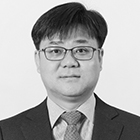 |
| KEYNOTE |
|
 |
| . |
|
|
Hyeon Suk Shin
Center for 2DQH, South Korea
Keynote – Plenary Session
Hyeon Suk Shin is the director of IBS Center for 2D Quantum Heterostructures at SKKU and a professor at Department of Energy Science, SKKU. Before joining IBS center and SKKU, he was a UNIST endowed chair professor at Department of Chemistry, Ulsan National Institute of Science and Technology (UNIST), Korea. He received his PhD from Department of Chemistry at POSTECH in 2002. After working as a postdoctoral fellow at University of Cambridge, UK and subsequently as a research Professor at POSTECH, he joined UNIST in 2008 and recently moved to SKKU to become the director of the IBS center at SKKU in 2024. He received ‘Scientist of the Month’ award (Ministry of Science and ICT) in 2023, Grand Academic Award (UNIST) in 2023, 'Top 100 National R&D Outstanding Achievements' award (Ministry of Science and ICT) in 2021, Sigma-Aldrich Excellent Chemist Award (Korean Chemical Society) in 2021, Basic Researcher of the Year award (Ministry of Science and ICT, Republic of Korea) in 2020, Creative Knowledge Award (Minster Award by Ministry of Science, ICT, and Future Planning) in 2015, outstanding researcher award (Materials Chemistry Division, KCS) in 2015, the Faculty of the Year award of UNIST in 2014, and the Minister award of Ministry of Knowledge Economy, Korea in 2012. His current research focuses on 2D materials, their amorphous structures, and their applications for energy conversion and storage
|
|
|
|
|
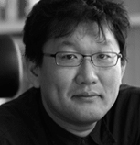 |
| WORKSHOP 4 |
|
 |
| . |
|
|
Young-Woo Son
Korea Institute for Advanced Study, South Korea
Invited – Workshop 4: Theory of 2D Materials and Devices Simulation
Young-Woo Son has studied physical properties of various materials based on first-principles computational approach.
Sep. 2008− : Professor, Korea Institute for Advanced Study, Seoul, Korea
2007−Aug. 2008 : Assistant Professor, Department of Physics, Konkuk University, Seoul, Korea
2004−2006 : Postdoctoral Scholar, Department of Physics, UC Berkeley and LBNL
2004 : Ph.D. in Physics at Seoul National University, Seoul, Korea
|
|
|
|
|
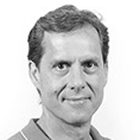 |
| WORKSHOP 7 |
|
 |
| . |
|
|
Sergio O. Valenzuela
ICN2, Spain
Invited – Workshop 7: 2D Magnetism and Spintronics
Sergio Valenzuela obtained his PhD in Physics in 2001 at the Universidad de Buenos Aires (Argentina) and held research positions at Harvard University and the Massachusetts Institute of Technology (MIT). Since July 2008 he has been an ICREA Research Professor and leader of the ICN2 Physics and Engineering of Nanodevices Group. His research is focused on the unique properties of materials with nanoscale dimensions, motivated by both their intrinsic scientific interest and their potential for advanced electronic applications. His work encompasses spintronics, quantum computation with superconducting circuits and quantum metrology. Together with his collaborators, he has pioneered the use of non- local devices to study the spin Hall effect and of thermopiles to isolate the magnon drag in ferromagnetic materials, and he has implemented novel qubit control and spectroscopy methods.
|
|
|
|
|
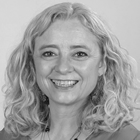 |
| INVITED |
|
 |
| . |
|
|
Lourdes F. Vega
Khalifa University, UAE
Invited – Plenary Session
Dr. Lourdes F. Vega is a Full Professor in Chemical Engineering, Director and Founder of the Research and Innovation Center on CO2 and Hydrogen (RICH Center) and Theme Lead on Energy and Hydrogen at the Research and Innovation Center for Graphene and 2D materials (RIC2D) at Khalifa University in Abu Dhabi, United Arab Emirates. She has developed her career between academia and industry, with positions in the USA, Spain, and the UAE. An expert on computational modeling and energy, she is internationally recognized for moving fundamental science to the applied world in the areas of clean energy and sustainable products, focused on Hydrogen and its derivatives, CO2 capture and utilization, sustainable fuels, and sustainable cooling systems. The impact of her work has been recognized through several prestigious awards, including, among others, the V60 recognition as one of the 60 impactful Women in the Middle East driving sustainability, and one of the TOP100 Women Leaders in Spain (TOP 10 exterior), both in 2024, the 2020 Mohammed Bin Rashid Medal of Scientific Distinguishment for her contributions in clean energy and sustainable products, and the 2013 Award in Physics, Innovation and Technology by the BBVA Foundation and Spanish Royal Society of Physics. She is a Fellow of the American Institute of Chemical Engineers (AIChE), an Academician of the Royal Academy of Science of Spain, the Mohammed Bin Rashid Academy of Scientists in the UAE, and the Academy of Sciences of Granada. Prof. Vega is a member of the Emirates Scientist Council, the Mission Innovation on Clean Hydrogen (representing the UAE), she also serves on the Scientific Advisory Board of several other international institutions and the Board of Directors (non-executive Director) of two companies.
|
|
|
|
|
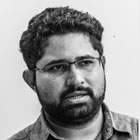 |
| INVITED |
|
 |
| . |
|
|
Aravind Vijayaraghavan
The University of Manchester, UK
Invited – Plenary Session
Aravind Vijayaraghavan is Professor of Nanomaterials at The University of Manchester, where he leads the Nanofunctional Materials Group. His research focuses on the development of novel applications of 2-dimensional materials and the underpinning science. He has published over 100 papers in international journals, filed 7 patents and established 2 spin-out companies, Grafine Ltd and Atomic Mechanics Ltd. He is also the faculty Head of Business Engagement in Advanced Manufacturing.
|
|
|
|
|
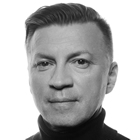 |
| INDUSTRIAL FORUM |
|
 |
| . |
|
|
Valentyn S. Volkov
XPANCEO, UAE
Invited - Industrial Forum
Valentyn S. Volkov, PhD, is an internationally renowned expert in the field of nanophotonics and advanced materials, with two decades of experience at leading universities and research centers.
|
|
|
|
|
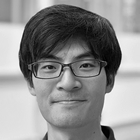 |
| WORKSHOP 1 |
|
 |
| . |
|
|
Kenji Yasuda
Cornell University, USA
Invited – Workshop 1: Twistronics, Moiré Physics and Topological Phenomena
Prof. Kenji Yasuda earned his Ph.D. in Applied Physics in 2018 from the University of Tokyo, where he discovered various spintronic functionalities in magnetic topological insulator thin films. He then moved to the Massachusetts Institute of Technology, where he pioneered the field of artificial ferroelectrics based on van der Waals heterostructures. He joined the School of Applied and Engineering Physics at Cornell as an assistant professor in 2024. The Yasuda lab designs quantum nanomaterials and heterostructures to explore novel physical properties and functionalities. Prof. Yasuda has received numerous honors and awards, including MRS Postdoctoral Award.
|
|
|
|
|
| |





